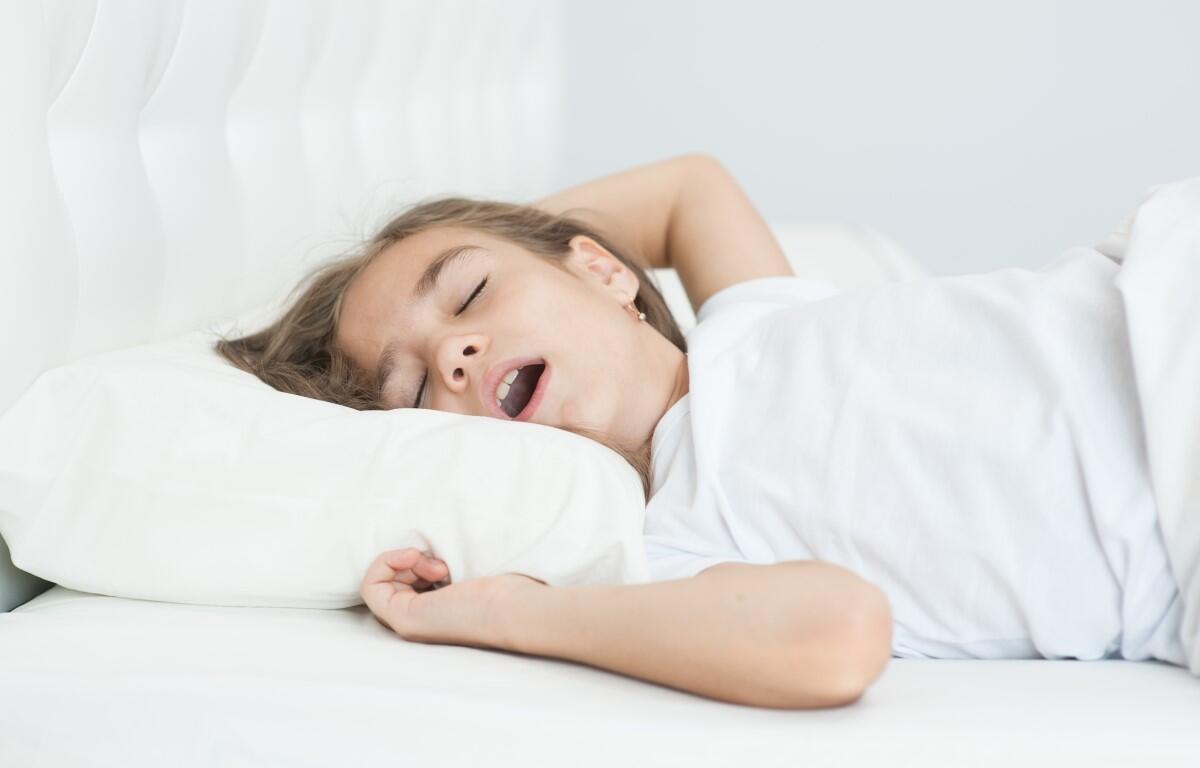Sleep disorders cause all sorts of problems, and are more common than most people realize. Dr. Jennifer J. Cornell, DDS, at Dental Sleep and TMJ Solutions of Clarksville has answers to some of the questions that come up about the conditions preventing you from getting a good night’s sleep.
Question: I have noticed my child seems to mouth breathe, should I be concerned?
Answer: Mouth breathing, when chronic or habitual, can indeed have negative effects on health for several reasons:
- Reduced moisture and filtering: The nose acts as a natural air filter and humidifier. When you breathe through your nose, the air is moistened, warmed, and filtered of particles like dust and allergens. Mouth breathing bypasses these benefits, leading to drier and potentially more irritating air reaching your lungs.
- Decreased nitric oxide production: Nitric oxide is produced in the nasal passages and has various health benefits, including improving oxygen uptake in the lungs and acting as a natural antibacterial agent. Mouth breathing reduces the amount of nitric oxide inhaled.
- Increased risk of infections: Breathing through the mouth can increase the risk of respiratory infections. The nasal passages have structures like turbinates and hairs that help trap pathogens and prevent them from entering the lungs. Mouth breathing can allow these pathogens to bypass these protective mechanisms.
- Orthodontic and facial development issues: Chronic mouth breathing, especially during childhood, can lead to dental and facial development issues. It can contribute to a higher palate, dental malocclusion (misalignment of teeth), and changes in facial structure over time.
- Sleep disruptions: Mouth breathing during sleep can be associated with sleep disorders like snoring and obstructive sleep apnea. This can lead to poor sleep quality and various health problems associated with sleep disturbances.
- Dry mouth and dental problems: Mouth breathing often causes dry mouth, which can increase the risk of dental issues such as cavities, gum disease and bad breath (halitosis).
- Impact on breathing mechanics: Nasal breathing supports better breathing mechanics. It promotes diaphragmatic breathing (using the diaphragm efficiently), which is healthier for the lungs and overall respiratory function.
There are various reasons why children tend to mouth breathe. Allergies, enlarged tonsils, poor tongue posture and even undiagnosed sleep apnea can be a few of the causes. It is important to first understand there is an issue and then get the right people on the team to understand what the issue is stemming from and find solutions.
What can be done
As dentists, and especially dentists with airway training, we are the ones who understand the craniofacial respiratory complex. We can also help change the trajectory of craniofacial growth from an unhealthy direction to one of healthy growth and development. There are other key team members who help with this too. Your pediatrician, an ENT, a myofunctional therapist and possibly an allergist and orthodontist. Building the right team is important.
Children are in a constant state of growth and development. Breathing and breathing in the healthiest way are vital to proper growth and development. Chronic mouth breathing is a red flag that suggests something is not going in the right direction.
In summary, while occasional mouth breathing is normal and can be necessary during physical exertion or in certain situations, habitual or chronic mouth breathing can have adverse effects on health, particularly impacting respiratory, dental and sleep-related aspects of well-being. If mouth breathing is persistent, it is important to bring it to the attention of a well trained health care provider.
At Dental Sleep & TMJ Solutions of Clarksville we always welcome our younger visitors who might be displaying symptoms of chronic mouth breathing. We are Healthy Start Providers, which is non-invasive, non-pharmaceutical, pain-free approach to assuring growth and development of the airway, jaws and teeth is on the healthiest path possible. We have a network of other local providers we can reach out to if needed. We all want what is best for our children and healthy breathing is at the top of the list.
Jennifer J. Cornell, DDS, is a diplomate of the American Board of Dental Sleep Medicine. For more, visit the Dental Sleep and TMJ Solutions of Clarksville website or call 931-645-8000.


